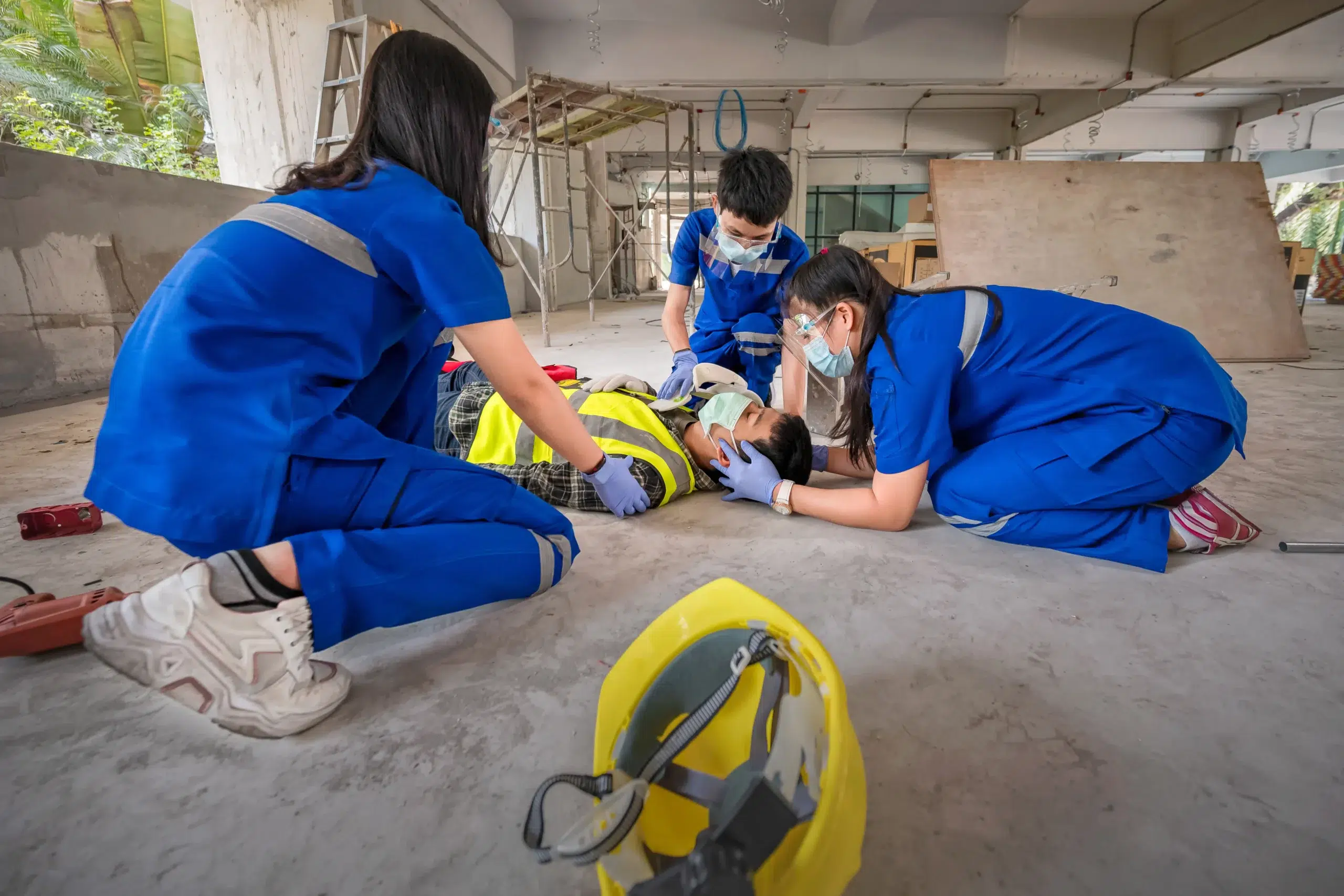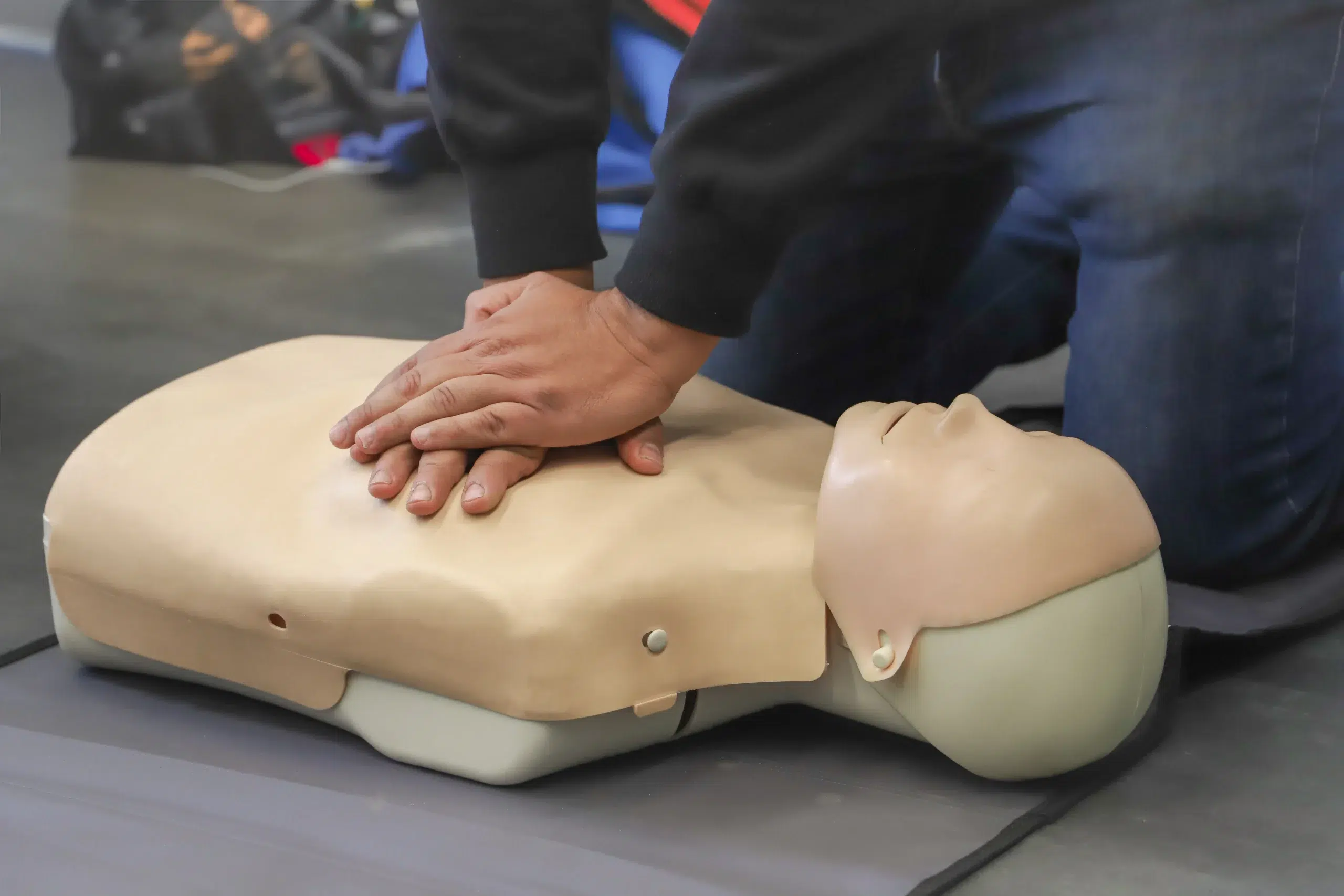As a healthcare professional, your time is precious. Between long shifts, continuing education requirements, and personal commitments, finding time for essential certifications like PALS can be a challenge. That’s why HeartCode PALS is gaining popularity among busy medical professionals in San Jose. This blended learning approach offers the flexibility to complete the coursework online at your own pace, followed by an in-person skills session to solidify your knowledge. This article will guide you through everything you need to know about PALS Heartcode in San Jose, including the differences between HeartCode PALS and traditional PALS, the cost of the course, how to register for a class, and what to expect during the skills session. We’ll also share tips for overcoming common challenges and insights from other healthcare providers who have successfully completed the HeartCode PALS program.
Key Takeaways
- HeartCode PALS blends online learning with hands-on skills: Study the course material at your own pace online, then demonstrate your abilities during an in-person skills session. This flexible approach accommodates busy schedules.
- PALS certification involves two costs: Budget for both the online coursework and the in-person skills check. Many training centers offer group discounts.
- Proper preparation is key for success: Complete the online portion, gather required documents, and refresh your BLS skills before attending the in-person session. Supplemental study materials can reinforce your learning.
What is HeartCode PALS?
What is HeartCode PALS?
HeartCode PALS is the American Heart Association (AHA)’s blended learning course for Pediatric Advanced Life Support. It combines online coursework with an in-person skills session, making it a convenient and effective way to get your PALS certification or recertify. This blended learning format allows you to learn the material at your own pace and then demonstrate your skills to a certified instructor.
Blended Learning Explained
HeartCode PALS uses a blended learning approach, combining online modules with a hands-on skills practice session. This flexible format lets you move through the online content at your own speed and then apply what you’ve learned during an in-person skills check. The online portion covers essential PALS concepts and protocols, preparing you for the practical application and assessment in the skills session.
Benefits of Online Learning
The online portion of the HeartCode PALS course offers several advantages. It provides a convenient way to learn the material, fitting easily into your busy schedule. You can study anytime, anywhere, and review sections as needed. The online modules cover a range of critical topics, preparing you to provide advanced life support for pediatric patients. This self-paced learning allows for a more in-depth understanding of the material before attending the in-person skills session. After completing the online portion and the in-person skills check, you’ll receive your American Heart Association PALS course completion card.
HeartCode PALS vs. Traditional PALS: What’s the Difference?
Key Differences
HeartCode PALS and traditional PALS both lead to the same American Heart Association PALS certification. The core difference lies in the learning method. Traditional PALS courses happen entirely in a classroom, with an instructor leading discussions and demonstrations. HeartCode PALS uses a blended learning format, combining online modules with a required in-person skills session. This lets you work through the course material at your own pace online and then demonstrate your skills with an instructor.
Advantages of HeartCode PALS
The flexibility of HeartCode PALS is a major draw for busy professionals. You can complete the online portion anytime, anywhere, fitting it around your schedule. This makes it a convenient option for those balancing work, family, and other commitments. The interactive online modules can also enhance learning. Simulations and case studies offer a safe environment to apply knowledge and make decisions, building confidence before the hands-on skills check. HeartCode PALS offers a convenient path to obtaining an American Heart Association PALS course completion card.
Time Efficiency and Flexibility
Finding time for required training is a common challenge for healthcare providers. Traditional PALS courses often demand a full day or more of in-person attendance, which can be tough to schedule. HeartCode PALS addresses this directly. The online portion can be completed in segments, making it easier to fit into a busy schedule. This blended learning approach lets healthcare professionals complete the online portion at their convenience, followed by a hands-on skills session. This is especially helpful for those in fast-paced environments or with limited time off. By completing the coursework online, you can dedicate your in-person time solely to skills practice and assessment.
How Much Does HeartCode PALS Cost in San Jose?
Getting your PALS certification is a two-step process, involving an online component and a hands-on skills session. Understanding the cost of each part will help you plan your training. Let’s break down the typical expenses for HeartCode PALS in San Jose.
Online Portion Pricing
The online portion of the HeartCode PALS course typically costs $168. This part of the training usually takes between four and six hours to complete, and you can work through the materials at your own pace from home. Providers like the Emergency & Health Training Center offer this convenient online training.
Hands-On Skills Session Fees
After completing the online portion, you’ll attend a two-hour, in-person skills session with an instructor. This session typically costs around $150. Don’t forget: you’ll need to bring the AHA HeartCode PALS completion certificate you earned online to participate. This blended learning approach combines online learning with practical skills training to ensure you’re fully prepared for certification. The Emergency & Health Training Center provides details on this combined approach.
Group Discounts and Savings
If you’re registering with a group, you might be able to save on the cost. Many providers offer discounts for group registrations for the hands-on skills session. For example, some offer a 25% discount for groups of two to five people. Check with your chosen provider about their group discount policy and any specific requirements. They may require a coupon code, like PALS25, during registration to apply the discount.
Find a HeartCode PALS Class and Register
Upcoming Class Dates
We offer the HeartCode PALS course regularly to fit busy schedules. Check our website for upcoming dates and times. We often have multiple options each month, sometimes with discounts!
Register for a Class
Ready to enroll? Register for a HeartCode PALS course online. Have questions or need help? Our customer service team is happy to assist. Call us at (408) 843-7375 or email [email protected].
Flexible Online Learning
The HeartCode PALS course uses a blended learning format. This means you’ll complete the online portion at your own pace, then attend an in-person skills session. The online part usually takes four to six hours. Purchase the online portion and the in-person skills session separately. This flexible approach helps you fit the training into your schedule.
Prepare for HeartCode PALS
Getting ready for your PALS certification involves a few key steps. This blended learning approach combines online coursework with a hands-on skills session, allowing you to learn at your own pace and then demonstrate your abilities in person. Here’s how to prepare:
Complete the Online Course
The first step is completing the HeartCode PALS online portion. This covers the cognitive information you’ll need, including interactive lessons, case scenarios, and self-assessments. Work through the modules at your own speed and review sections as needed. The online format offers flexibility, letting you fit the training around your schedule. Make sure you receive confirmation of completion, as you’ll need this for the in-person skills check. You can find more information and register for HeartCode PALS on the American Heart Association website.
Required Documentation
Bring proof of completion from the online course to your skills session. This confirms you’ve finished the cognitive component and are ready for the hands-on portion. You’ll also need a current government-issued photo ID. While not required for the skills session itself, it’s a good idea to familiarize yourself with child and infant Basic Life Support (BLS) skills, as these are fundamental to PALS. Explore BLS resources and courses on the Safety Training Seminars website.
Recommended Study Materials
While the HeartCode PALS online course provides comprehensive training, some students find supplemental materials helpful. The American Heart Association offers resources like the PALS Provider Manual, which can deepen your understanding. You can access these materials on the AHA website. Additionally, consider reviewing any notes or materials from previous PALS courses if you’re renewing your certification. Practice scenarios and quizzes can also reinforce your knowledge and prepare you for the skills session.
What to Expect at the Hands-On Skills Session
The hands-on skills session is where you’ll put your online PALS knowledge into action. It’s a crucial part of the HeartCode PALS certification process, focusing on practical application and assessment of your skills.
Skills You’ll Learn
This portion of the course emphasizes essential life-saving techniques. You’ll practice child and infant Basic Life Support (BLS) skills, ensuring you’re prepared for various pediatric emergencies. The session also includes learning stations focused on key areas like respiratory emergencies, rhythm disturbances, and vascular access. While practicing these skills at Safety Training Seminars is mandatory, testing on these specific case scenarios is optional.
Session Duration and Format
The hands-on skills session typically lasts a few hours and is conducted after you’ve successfully completed the online portion of the HeartCode PALS course. This blended learning approach allows you to learn the material at your own pace online before demonstrating your skills in person. This flexible format accommodates busy schedules and diverse learning styles. More information on the PALS course can be found on the American Heart Association website.
Assessment Process
The skills session serves as the practical exam for the HeartCode PALS course. Instructors will assess your competency in the required skills, ensuring you meet the American Heart Association’s standards. Because you’ve already completed the online portion, you should feel well-prepared to demonstrate your skills effectively during the in-person session.
Get Your HeartCode PALS Certification
After you’ve completed your HeartCode PALS training, you’ll want to receive your official certification. This section covers the requirements, how long your certification is valid, and how to renew it.
Certification Requirements
To receive your PALS certification, you must successfully complete both the online HeartCode PALS portion and the hands-on skills session. During the skills session, you’ll demonstrate competency in child and infant basic life support (BLS). You’ll also participate in three learning stations: Respiratory, Rhythm Disturbances, and Vascular Access. Testing on these scenarios may be optional, depending on the provider. Check with your chosen provider, like Safety Training Seminars, for specific testing requirements.
Certification Validity and Recognition
PALS certification is essential for healthcare providers working in pediatric care. It demonstrates your knowledge and skills in managing pediatric emergencies. Your PALS certification is valid for two years. Keeping your certification current ensures you’re equipped to provide the best quality of care.
Renew Your Certification
It’s important to remember that PALS certification isn’t permanent and requires renewal every two years. While online PALS courses offer a convenient way to learn the material, they don’t replace the crucial hands-on skills session required for certification. When it’s time to renew, you’ll need to complete both the online portion and the in-person skills check again. You can find renewal courses through providers like Safety Training Seminars. Don’t confuse PALS certification with basic life support (BLS) certification, which also requires periodic renewal.
Choose a HeartCode PALS Provider in San Jose
Finding the right provider for your HeartCode PALS certification is an important step. Here in San Jose, you have several options, allowing you to choose a course that fits your schedule and learning style.
Safety Training Seminars
Safety Training Seminars offers HeartCode PALS courses in Downtown San Jose, conveniently located for residents of surrounding areas like Alum Rock, Berryessa, and Newhall. Our central location at 675 N First St, Suite 700E, makes it easy to access quality training. We offer competitive prices and a low price guarantee, ensuring you receive excellent value. We also offer a wide range of other American Heart Association certification courses, including BLS, ACLS, and CPR.
Other Local Providers
While Safety Training Seminars is a great option, it’s always wise to explore other providers in the area. Look for providers who offer the blended learning format of HeartCode PALS, which combines online learning with a hands-on skills session. This approach allows you to study the course material at your own pace online and then demonstrate your skills in person.
Choosing the Right Course
One of the biggest hurdles healthcare providers face is finding the time for PALS certification. Juggling work schedules and personal commitments can make it tough to dedicate time to training. That’s why the flexibility of HeartCode PALS is so valuable. The online portion lets you learn at your own speed, fitting the coursework around your existing schedule. When selecting a provider, consider factors like location, schedule, and cost to find the best fit. Also, look into what’s included. The online modules should cover a comprehensive range of topics related to pediatric advanced life support.
Overcome HeartCode PALS Challenges
HeartCode PALS offers a flexible learning experience, but it still comes with its own set of challenges. Let’s break down some common hurdles and how to overcome them so you can succeed in your PALS certification.
Manage Your Time Effectively
One of the biggest challenges of any professional certification is finding the time to complete it. Juggling work, family, and other commitments can make it tough to dedicate the necessary time to your HeartCode PALS training. The beauty of the HeartCode PALS program is that the online portion is self-paced. Break down the coursework into smaller, manageable chunks. Instead of trying to cram everything in at once, dedicate 30 minutes or an hour each day to studying. This approach makes the material less daunting and easier to absorb. Consider using a time management app or a simple planner to schedule specific study times and stick to your plan.
Troubleshoot Technical Issues
While the HeartCode PALS platform is designed to be user-friendly, technical glitches can occasionally occur. Before you begin the online portion of the course, ensure your computer meets the technical requirements. A stable internet connection is essential, so choose a reliable location for your studies. If you encounter any technical difficulties, don’t panic. The American Heart Association typically provides technical support, so reach out to them for assistance. Taking these steps proactively can help you avoid unnecessary frustration and keep your training on track.
Master Advanced Concepts
PALS covers a range of complex medical concepts related to pediatric emergencies. Some participants find certain topics more challenging than others. Don’t hesitate to review the material multiple times or seek clarification when needed. Online medical resources and textbooks can provide additional support. Discussing challenging concepts with colleagues or joining online forums can also be beneficial. Remember, the goal is to thoroughly understand the material, not just memorize it. Take your time, ask questions, and focus on mastering the core principles of PALS.
What Other Participants Say About HeartCode PALS
Choosing the right PALS certification course is a big decision. Hearing from others who have completed the training can offer helpful perspectives. Here’s a look at what participants are saying about their HeartCode PALS experiences:
Positive Experiences
Many participants praise the engaging, high-quality instruction in HeartCode PALS. They appreciate the blend of online learning and hands-on skills sessions, finding this format effective for truly grasping the concepts and techniques of pediatric advanced life support. Reviews often mention the knowledgeable instructors who create a comfortable learning environment, empowering participants to feel confident in their abilities. One participant noted the positive impact of the instructor, sharing their experience with Quan Tan.
Areas for Improvement
While feedback is overwhelmingly positive, some participants suggest adjusting the pacing to allow more in-depth discussion on complex topics. Though comprehensive, a few learners felt certain modules could benefit from additional time for questions and practical application. This feedback highlights the importance of finding a provider that offers ample opportunities for interaction and clarification, such as Safety Training Seminars with its dedicated support team. More information on PALS courses can be found on our PALS Certification in San Jose guide.
Overall Satisfaction
Despite minor suggestions for improvement, participants consistently rate their HeartCode PALS experience highly and recommend the course to colleagues. They cite the combination of thorough content, skilled instructors, and practical application as key factors in their satisfaction. This positive feedback, reflected in various online reviews, reinforces the program’s effectiveness in preparing healthcare professionals for real-world pediatric emergencies. Learners report feeling well-prepared and confident in their ability to perform under pressure after completing the training.
Related Articles
- AHA PALS Classes in San Jose, CA – San Jose CPR Classes
- BLS ACLS PALS Training in San Jose: Your Guide – San Jose CPR Classes
- San Jose CPR Certification: Your Guide – San Jose CPR Classes
- American Heart Association Course – San Jose CPR Classes
- CPR Classes in San Jose: Your Complete Guide – San Jose CPR Classes
Frequently Asked Questions
What is the main difference between HeartCode PALS and a traditional PALS course? HeartCode PALS blends online learning with an in-person skills session, while traditional PALS takes place entirely in a classroom setting. Both methods lead to the same AHA PALS certification. The blended learning approach lets you learn the material at your own pace online, then demonstrate your skills to an instructor.
How long does it take to complete the HeartCode PALS course? The online portion typically requires 4-6 hours, and the in-person skills session usually lasts around two hours. Because the online portion is self-paced, you can complete it over multiple sessions to fit your schedule.
What is included in the hands-on skills session? You’ll practice essential skills like child and infant BLS, and participate in learning stations focused on key areas such as respiratory emergencies, rhythm disturbances, and vascular access. This session allows you to apply the knowledge you gained online in a practical setting.
How much does HeartCode PALS cost? The online portion typically costs $168, and the in-person skills session is usually around $150. Check with your chosen provider for exact pricing and any available group discounts. Some providers may offer discounts for groups of two or more.
Where can I find a HeartCode PALS course in San Jose? Safety Training Seminars offers HeartCode PALS courses in downtown San Jose. You can find their course schedule and register online through their website. They also offer other AHA certification courses like BLS, ACLS, and CPR. It’s always a good idea to compare different providers to find the best fit for your needs.








